Wellness Consultations

Customized Hormones and Wellness Consultations
Balancing out diet, exercise stress and nutrition can help to optimize customized hormone replacement. If you suffer from any of the following symptoms: fatigue, insomnia, mood swings, hot flashes, decreased stamina, low libido.
Alleviate the symptoms caused by the natural decrease in production of hormones by the body.
Give the protective benefits which were originally provided by naturally occurring hormones.
Re-establish a hormone balance.
Consultations are available by appointments at our Defiance location. Please give us a call at 419-784-4800 to schedule your appointment. Print off the desired consult forms below to have completed prior to your appointment time.
Female Consultation - General wellness plus balancing hormones to improve symptoms related to PMS, Peri-menopause and Post menopause
Male Consultation - General wellness plus balancing hormones to improve stamina and libido
General Wellness Consultation - a general review of overall health and wellness focusing on obtaining energy by improving diet, exercise and nutritional supplements
Testing Options
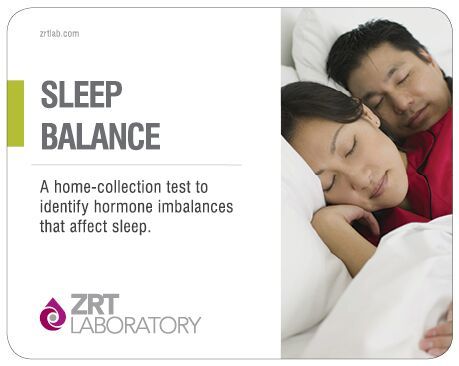
Sleep Balance Kit
ZRT is the only laboratory offering testing for the circadian rhythm of melatonin in concert with cortisol and cortisone to assess sleep / wake cycle dysfunction. Circulating melatonin is efficiently hydroxylated and conjugated with sulfate in the liver to form its primary metabolite, 6- sulfatoxymelatonin (MT6s), and excreted into urine; it is this metabolite that is measured in the Sleep Balance Profile. Adrenal cortisol, produced in response to stress, is also known for its diurnal variation linked to the sleep/wake cycle. It has the opposite pattern to melatonin production in a healthy individual. Sleep Balance Profile allows physicians to pinpoint imbalances of melatonin and cortisol circadian rhythms associated with acute or chronic sleep disturbances.
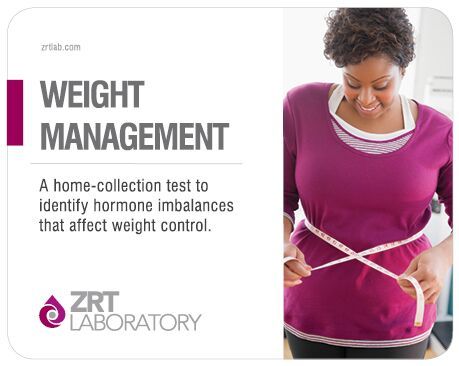
Weight Management
The Weight Management Profile identifies hormonal imbalances that contribute to obesity, weight gain and difficulty losing or sustaining a healthy weight. Used as a screening tool, it serves as an early indicator of insulin resistance and risks for metabolic syndrome and diabetes. Weight Management Profile allows physicians to isolate specific imbalances of one or more hormones that contribute to weight gain, slowed metabolism, increased body fat deposition, and food / sugar cravings. Facilitates correction of imbalances for proactive weight control, and associated risks for cardiometabolic disease and diabetes. Consider for Women: • With premenstrual weight gain and fluid retention • Perimenopausal and/or menopausal weight gain in hips/thigh, and/or inability to lose/tendency to regain weight, central obesity, PCOS, adrenal and thyroid dysfunction • Breast cancer risks Consider for Men: • With andropausal weight gain in hips/thighs (female fat distribution pattern) and/or inability to lose/tendency to regain weight, central obesity, adrenal and thyroid dysfunction • Prostate cancer risks
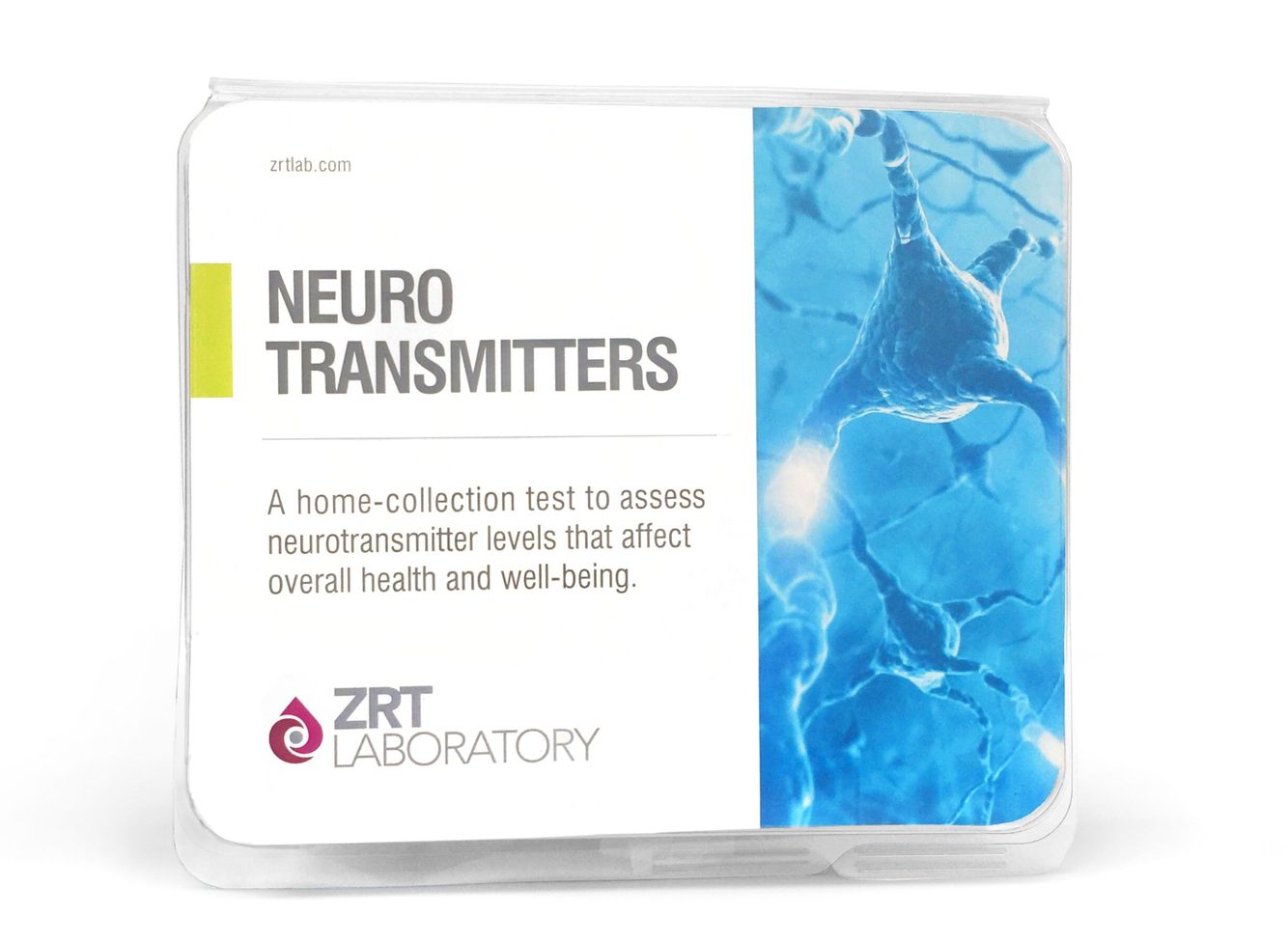
Neurotransmitters
In the neurological system, hormones are synergistic with neurotransmitters – modulating their production, signaling and metabolism. Because of this complex interplay, testing hormones and neurotransmitters together is an ideal way to generate a more precise clinical assessment. Elements are also important for brain health - deficiencies in iodine or selenium compromise the neuroprotective functions of thyroid hormones and lithium is implicated in neuroprotection and regeneration. Heavy metals on the other hand disrupt neurotransmitter synthesis, metabolism, and signaling, contributing to the burden of neurological dysfunction. Combined testing of neurotransmitters with hormones and/or neurotransmitters with heavy metals and nutrients gives practitioners a diagnostic edge over the traditional psychological inventory. It offers the advantage of zeroing in on which therapies are best suited for individual patients – cutting down on the time-consuming process of trial-and-error for identifying treatment options. This testing also allows practitioners to monitor individual biochemical changes during and after intervention. Consider for: testing neurotransmitters in patients with a suspected neurochemical imbalance can help assess individual biochemistry and get to the root of persistent issues such as: • Mood / affective disorders • Adrenal dysfunction • Addictive behaviors • Sleep problems • ADD / ADHD or OCD • PMS / PMDD
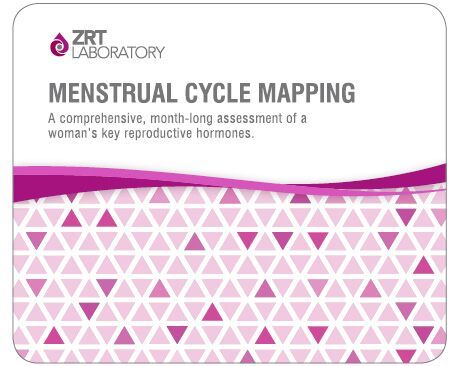
Menstrual Mapping
This profile offers an assessment of sex hormone and LH patterns throughout a menstrual cycle to help health care practitioners get to the root of hormone-related menstrual symptoms, irregular cycles, amenorrhea, or infertility. Dried urine testing provides a simple and convenient way to assess fluctuations in daily hormone levels over an entire month, known as menstrual cycle mapping. Consider for: • Women with irregular cycles, cyclic hormone-related symptoms such as pre-menstrual syndrome (PMS) or headaches, infertility, or luteal phase defects to determine the source of their problems
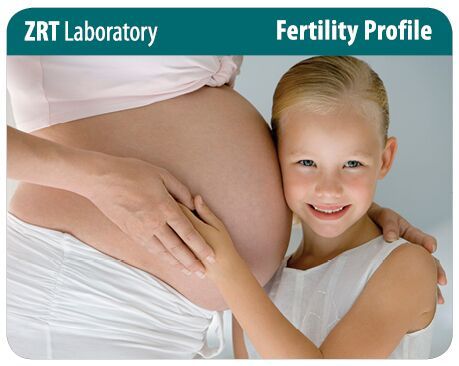
Fertility Kit
The profile provides a thorough evaluation that can identify many problems related to hormone imbalances that are associated with infertility. Dried blood spot samples are collected on days 3 and 21 of the menstrual cycle, and saliva samples are collected only on day 21. LH and FSH are tested on day 3, while on day 21 estradiol, progesterone, testosterone, DHEA-S, SHBG, and the thyroid hormones are tested in dried blood spot and diurnal cortisol is tested in saliva. Fertility Profile meets the requirement for initial screening for fertility assessment by reproductive endocrinologists. Assessment of ovarian reserve as well as screening for multiple common reasons for infertility including: • Anovulation • PCOS • Hypothyroidism • Premature ovarian failure or ovarian insufficiency Consider for: • Women who have been trying to get pregnant without success, or who would like to be proactive in their preconception planning by getting a baseline screening
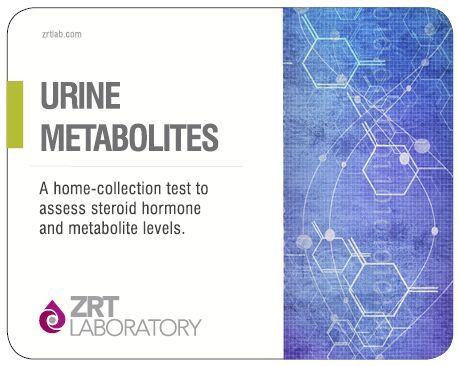
Urine Metabolites
diurnal variation linked to the sleep/wake cycle. It has the opposite pattern to melatonin production in a healthy individual. Sleep Balance Profile allows physicians to pinpoint imbalances of melatonin and cortisol circadian rhythms associated with acute or chronic sleep disturbances.
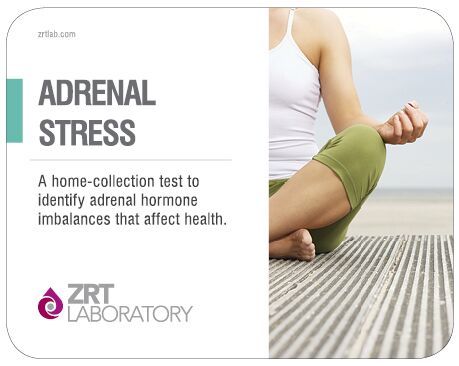
Adrenal Stress
The profile tests the adrenal hormones DHEA-S and diurnal cortisol. When individuals experience continuous stress, not only from emotional stressors (e.g., marital, financial, andoccupational) but also from physical stressors (e.g., sleep deprivation, caffeine consumption,pain, extreme exercise), it can lead to changes in adrenal hormone levels, related to disorders ranging from anxiety to infertility. Consider for: Individuals under stress with multiple symptoms of adrenal imbalance, including immune dysfunction, fatigue, allergies, and sleep disturbances
Blood Spot Testing
Blood Spot Testing is ideal for measuring hormones and other analytes such as insulin, bloodlipids, Vitamin D, thyroid hormones, and elements like lead andmagnesium. Blood spot testinggives results equivalent to serum but with distinct advantages over serum testing for monitoringtopical and vaginal hormone supplementation.
Dried Urine
This profile offers an assessment of sex hormone and LH patterns throughout a menstrualcycleto help health care practitioners get to the root of hormone-related menstrual symptoms, irregular cycles, amenorrhea, or infertility. Dried urine testing provides a simple and convenient way to assess fluctuations in daily hormone levels over an entire month, known as menstrual cycle mapping.
Saliva Sample
The Cortisol Awakening Response–also called CAR–reveals more detailed clues that help in assessing adrenal hormone/ HPA Axis dysfunction. Six cortisol collections in 24 hours is the most common method for assessing CAR. Start saliva collection within five minutes of waking for the day, followed by a second sample at 30 minutes, and a third sample at 60 minutes. The rest of the diurnal rhythm can be assessed at the normal time intervals–noon, evening and night.
